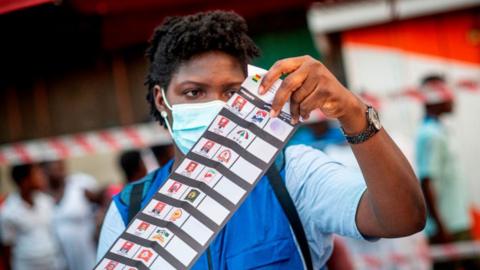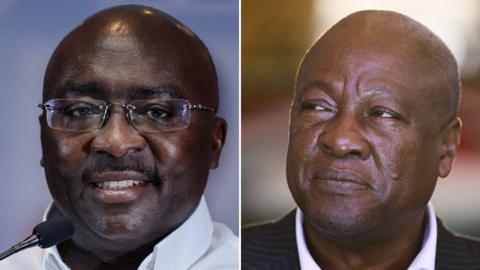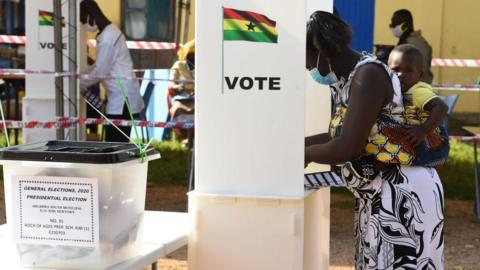Economic questions have topped people’s concerns in the build-up to the election, especially the rising cost of living. At the end of 2022, the annual inflation rate hit 54%. It has come down since then but prices are still rising steeply.
The World Bank said as many as 850,000 Ghanaians may have been pushed into poverty in 2022 because of the rising prices of goods and services. These "new poor" joined the six million who were already living in poverty.
By the end of 2022, government finances had been depleted with little left to support the country’s budget, forcing Ghana to go to the International Monetary Fund for help.
Unemployment among young people and an exodus of Ghanaians looking for better opportunities elsewhere has also been a feature of recent years.
The NDC has decried this as an "abysmal performance" and has demanded a reset.
The governing NPP says it has built a resilient economy that is on the "cusp of… transformation" so it is not the time to change.
Concerns over the environmental impact of illegal gold mining – known in the country as “galamsey” – have become another major talking-point. A series of demonstrations over the practice, which has led to the pollution of several major rivers with dangerous chemicals, have been held in the build-up to the vote.
Both major parties agree that the issue needs to be addressed, but while the NPP says it is important for the economy to allow some small-scale miners to continue their work, the NDC is calling for much tougher regulation and the restriction of new licences.


